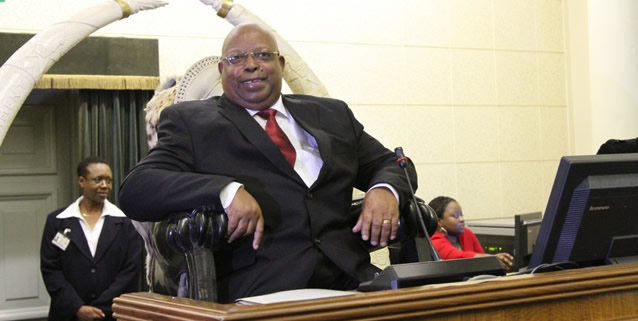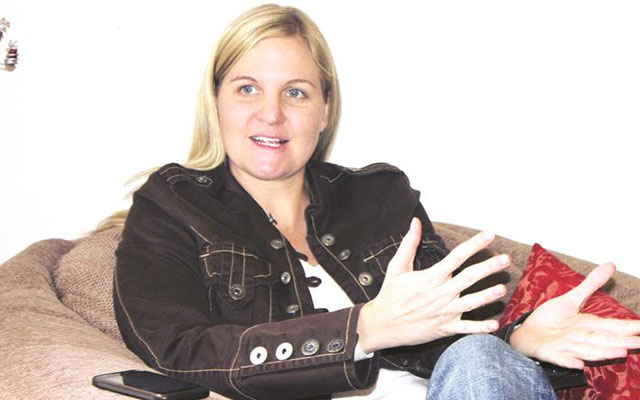Getting climate change priorities right in Africa vital

Jeffrey Gogo Climate Story
After agreeing a deal with the AU Commission chairman Moussa Faki Mahamat in Ethiopia last week, UN secretary general Antonio Guterres remarked how global economic development accounted for nothing “if Africa does not succeed in its development” His message was clear: the growth of Africa is a growth of the world. And failure in, and of, Africa is failure of the world.
In other words, Africa was central to the social, economic and political stability of itself, and that of the rest of the world. On that scorecard, failure looks closer to home. Nearly 60 years after the end of colonialism, parts of Africa remain entrenched in endemic poverty, war, hunger, disease and famine.
Endless wars in Sudan, the DRC, Libya and Somalia have stolen millions of Africa’s innocent, and sent many to Europe’s shores, where, should they escape almost certain death in the Mediterranean Sea, will meet up with it in real life: unwanted, unloved and unwelcome.
Economists at the World Bank and other such Bretton Woods Institutions often speak of the rapid growth of African economies driven mostly by commodities or, for that matter, the use of cellular phones.
But economic growth that does little to address fundamental issues — real issues affecting real people — perpetuating poverty, ill-health and hunger is, as the UN’s Guterres intimated, no growth at all.
Now, the issue of romantic economists infatuated with economic figures that mean nothing to the grandmother going hungry in Chivi or Kotwa is just one problem. Climate change is a bigger issue, already observed to be making the long list of Africa’s post-colonial challenges worse.
For example, the UN panel on climate change estimates that by 2080, diseases such as malaria will multiply in areas along the tropics, like Zimbabwe, due to warming temperatures. A critical shortage of rain could cut farm output by between 30 and 50 percent by mid-Century, it says, as water in rivers, lakes and dams decline by half by 2100.
This is why Mr Guterres is keen on driving development that tackles old and new problems in a clever way, by synchronising the goals of the African Union under its development plan for the next 50 years called “Agenda 2063”, with those of the UN’s own 2030 Agenda for Sustainable Development.
At a separate occasion during the African Union Summit in Addis Ababa last week, Mr Guterres and Mr Faki Mahamat, the AU Commission chief, signed the framework agreement on implementing the two development pathways.
The Agreement “envisions stronger coordination between the AU and UN to ensure the two Agendas are main-streamed and integrated into national planning frameworks,” said sustainable development expert Catherine Benson Wahlen of global think tank International Institute for Sustainable Development, who attended the conference.
According to the AU, the Framework will focus on achieving transformation across Africa by putting people and the environment at the centre of it all. Without that, the long-term goals for both Agendas on peace and security and development may be threatened.
Trying times
The UN “2030 Agenda” is essentially the Sustainable Development Goals (SDGs), launched in 2015 to replace the Millennium Development Goals, which expired that year. The SDGs outline 17 specific goals and 169 targets covering climate change, poverty, inequality, sustainable development and others.
Whereas the MDGs were grossly vague on climate change, the SDGs are not. The Sustainable Development Goals address specific climate change problems such as the need to cut greenhouse gases emissions to achieve development that is both real and sustainable.
In that sense, the AU’s “Agenda 2063”, which prioritises economic development, poverty eradication, women empowerment and others, shares a number of priority areas with the SDGs.
But Mr Guterres, the UN secretary general, still sees that “significant gaps persist between the Agendas, particularly on the environment, energy, water, industrialisation, and infrastructure.”
He is right. Several of the SDGs and the targets under Africa’s 50-year development plan will be of no effect if they didn’t address issues in some of the key economic sectors that both fuel climate change and are badly affected by it, such as energy, water and industrial development.
There is no doubt that boosting food production and security and growing the economy is ending hunger and unemployment. And those aspects seem sufficiently covered. However, on a continent where agriculture remains the economic mainstay, supporting 70 percent of the population, the threat brought on by climate change is a major concern. Agriculture is vulnerable to climate change, and Africa doesn’t have enough money to help its peoples cope.
Extreme climate events such as flashing flooding or droughts, common occurrences across Zimbabwe in the last 35 years, could scupper the Sustainable Development Goals poverty eradication and hunger targets. And those of Agenda 2063.
A report by the London-based Overseas Development Institute in 2015 shows that without radical climate action, some 720 million people worldwide risked falling into extreme poverty.
“The achievement of global zero net emissions require action by countries across all levels of development and is compatible with poverty eradication,” it said then.
Zero net emissions refer to a complete stop in the production of climate-warming greenhouse gases like carbon dioxide and methane. Research has also shown that deeper emission cuts by 2030 will boost economic growth in poor countries by up to 3,9 percent, helping to cut poverty and hunger.
But global emissions are unlikely to peak by 2030 as is desirable and compatible with the 2 degrees Celsius temperature rise cap while the zero net emissions goal by end of the 21st Century remains a pipe dream.
Even Mr Guterres is unimpressed by the existential threat. In Addis Ababa, he “underlined the links among poverty, hunger and food insecurity and the inter-linkages among climatic shocks, crop and livestock prices, and conflict.”
He then called “for national agricultural policies that focus on poverty, hunger, and resilience to climate change.”
In other words, to achieve the two sets of Agendas under the Framework Agreement, or even separately, the world needs to first get its climate change priorities right.
God is faithful.









Comments